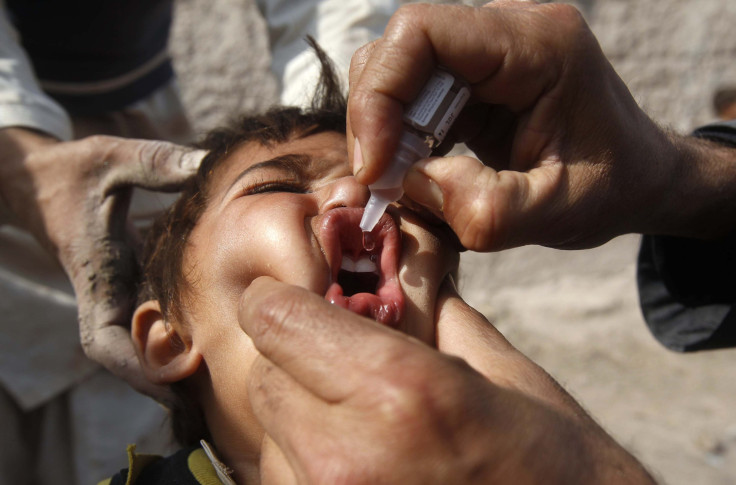Polio Epidemic In Syria Puts Children At ‘Far Higher Risk,’ Sparks Fears Of Outbreak After 22 Kids Are Infected

A polio epidemic in war-torn Syria has sparked fears of an outbreak. According to the AFP, members of the World Health Organization, or WHO, and the UN’s children’s agency, are leading an effort to vaccinate “as many children as possible” across the country before the crippling disease spreads.
The campaign to vaccinate children against polio comes after 22 children were suspected of contracting the disease in Deir al-Zor province near the eastern city of Deir Ezzor. Reuters reported that most of the children experienced acute flaccid paralysis, a symptom of many diseases, including polio. Initial tests came back positive for polio in two of the cases. Experts believe the rest of the tests will also come back positive for the polio virus, although results are not due until next week.
"Everybody is treating this as an outbreak (of polio) and is in outbreak response mode," WHO spokesman Oliver Rosenbauer told Reuters. "The main concern right now is to quickly launch an immunization response.” If this is in fact a polio outbreak, it would be the first in 14 years.
During times of war, public health often suffers, as a country’s resources are diverted elsewhere. Because of the war, hundreds of thousands of children have not been vaccinated against polio over the past two years. About 4,000 refugees flee Syria’s civil war every day, leading to gaps in humanitarian efforts, including polio immunizations.
Other diseases preventable by basic hygiene are also on the rise. Reports of malnutrition have soared in Syria, CNN reported, and people with chronic diseases like cancer and diabetes are dying because they can’t get treatment.
According to CNN, aid workers in Syria are barred from reaching nearly 2.5 million people. "It’s going to be a tough one," Bruce Aylward, WHO’s assistant director-general for polio, emergencies and country collaboration, told CNN.
Polio is a debilitating and potentially fatal infectious disease that attacks the nervous system. In just a matter of a few hours, it can cause irreversible paralysis. The virus enters the body through the mouth and spreads in the intestines. Initial symptoms include fever, headache, fatigue, vomiting and stiffness of the neck and pain in the limbs.
According to the Centers for Disease Control and Prevention, polio is endemic to Afghanistan, Nigeria and Pakistan, and it has been reintroduced in neighboring countries after the virus was previously stopped. One in 200 cases of polio, or poliomyelitis, lead to irreversible paralysis, according to the WHO. There is no cure for polio, but effective vaccines against the virus are available.
The global anti-polio campaign has made great strides toward eradicating the illness. Since 1988, polio cases around the world have decreased by over 99 percent. That year, there were an estimated 350,000 cases. In 2012, there were just 223.
But in Syria, as war wages on, polio remains a threat. "Children are now at far higher risk of diseases such as polio and measles," UNICEF spokeswoman Marixie Mercado told the AFP. “It is more urgent than ever that this campaign be allowed to take place and that we reach all the children that we are trying to get to.”
© Copyright IBTimes 2024. All rights reserved.






















